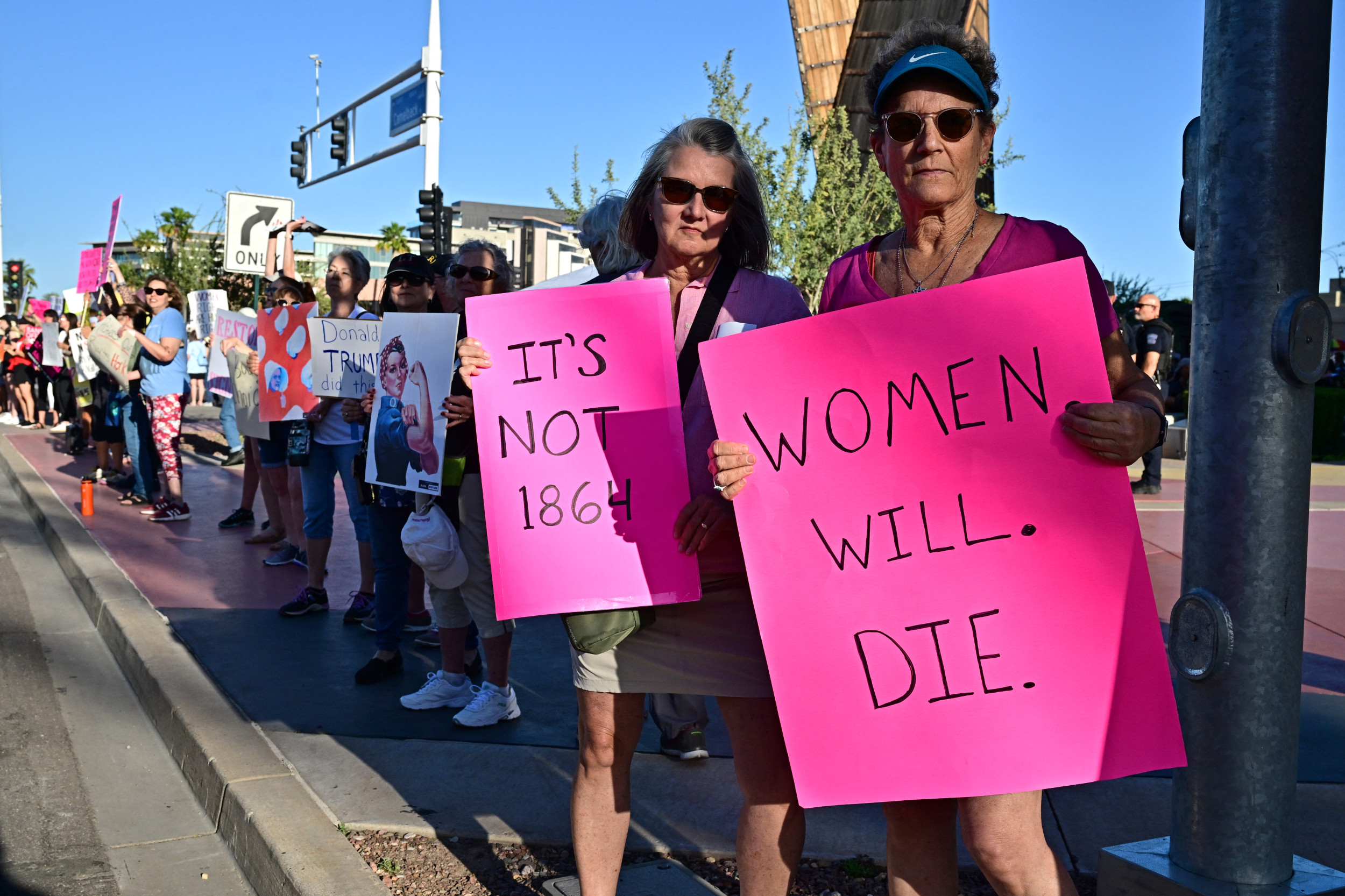Earlier this week, a Swedish student managed prevent the deportation of an Afghan asylum seeker by refusing to take her seat until the man was removed from the aircraft.
Elin Errson, 21, ignored pleas from air stewards and fellow passengers to take her seat, as she live streamed her protest at Gothenburg airport. "I don't want a man's life to be taken away just because you don't want to miss your flight," she told fellow travelers as she held back tears. "I am not going to sit down until the person is off the plane."
The man was eventually removed from the plane. Errson followed, cheered on by many of her fellow passengers. According to Deutsche Welle, the man will still face deportation at a later date, while Ersson may face a fine or jail time for her demonstration. Any passengers who refuse to obey a pilot's orders while on board a plane could be jailed for up to six months in jail, the agency said.

The law is the same in the U.S. as Federal Aviation Authority regulations give air crews near-total control over their aircraft. The broad rules state that "no person may assault, threaten, intimidate, or interfere with a crew member in the performance of the crew member's duties aboard an aircraft being operated."
There is no guarantee that a protester would be successful, and it is just as likely they will be removed while the asylum seeker remains. Much would depend on the temperament of the crew, some of whom are less compromising than others.
Errson's noble act—which gained significant media attention and has racked up almost 4 million views as of Thursday—may only have delayed the inevitable. The man will likely still face forced removal at a later date.
Nonetheless, Sophie Walker, a lawyer at the British One Pump Square firm, told Newsweek Errson's actions may have given the man valuable time in Sweden. "As long as someone is in the country they're safe, and there can always be further efforts made to put forward new arguments, new evidence or new information that may change the government's' mind and allow that person to stay."
It should be noted that applying for asylum is a very different prospect to arriving in a new country as a refugee. Asylum seekers travel to foreign nations because they fear for their safety at home, for example because of persecution for political stance, religious beliefs or sexuality.
In the U.S., the application process takes an average of 180 days and involves mountains of paperwork followed by two interviews. For most, the lengthy process is unsuccessful, with around 62 percent rejected. In 2017, the rejection rate for asylum seekers in America increased for the fifth year in a row.
Read More: Who is Elin Errson? Student who stopped deportation flight may face jail
This week's case in Sweden is a single example of a huge issue spanning the globe. Though his chances of remaining in Europe may be slim, drawing attention to the man's case may give him a better chance of staying put.
When a case like this hits the headlines, top-class legal representatives sometimes offer their assistance, Walker said. Improved legal support might offer the man a lifeline. "The advantage of stopping a plane and making sure someone can stay is that it often does give opportunities to further appeal," explained Walker.
But this is just one case in a sea of forced deportations all over the world. Activists like Errson are swimming against the tide. Regardless, commercial airlines stand to gain little from working with governments to deport asylum seekers, and the potential negative PR is a significant consideration.
Virgin airlines faced a huge backlash after its involvement in the wrongful deportation of Caribbean migrants from the U.K. came to light. In response, the airline said last month it would no longer assist the British government in its forced removals.

Rather than stop them, public pressure tends to move deportations away from commercial companies and the public eye. Governments—including Sweden and the U.S.—are using charter flights to remove failed asylum seekers.
"I think this is only going to become a more difficult problem to stop going forward," Walker said. "Stopping commercial flights is almost the easier thing to do—it is much more difficult with charter flights from non-commercial airports. It drives the whole thing underground a bit and makes it harder to challenge."
In an interview with the Guardian, Errson said she bought a ticket on the flight to stop the deportation of two asylum seekers. But only one, the Afghan man, was on board. She believes the second man was taken to Stockholm, from where he was flown back to Afghanistan.
"This is how deportations in Sweden work," she said. "The people involved know nothing and they are not allowed to reach out to their lawyers or family."
Walker said protests like Errson's, even if they only delay the removal of one asylum seeker, are welcome. She believes that the "detention and forcible removal of asylum seekers and immigrants is something to be ashamed of. The more attention that comes to it, the better, and the more likely we are to keep the government on it.
"It should be a small group of people who are being forcibly removed, rather than the numbers we're seeing at the moment," Walker said.
Uncommon Knowledge
Newsweek is committed to challenging conventional wisdom and finding connections in the search for common ground.
Newsweek is committed to challenging conventional wisdom and finding connections in the search for common ground.
About the writer
David Brennan is Newsweek's Diplomatic Correspondent covering world politics and conflicts from London with a focus on NATO, the European ... Read more
To read how Newsweek uses AI as a newsroom tool, Click here.





